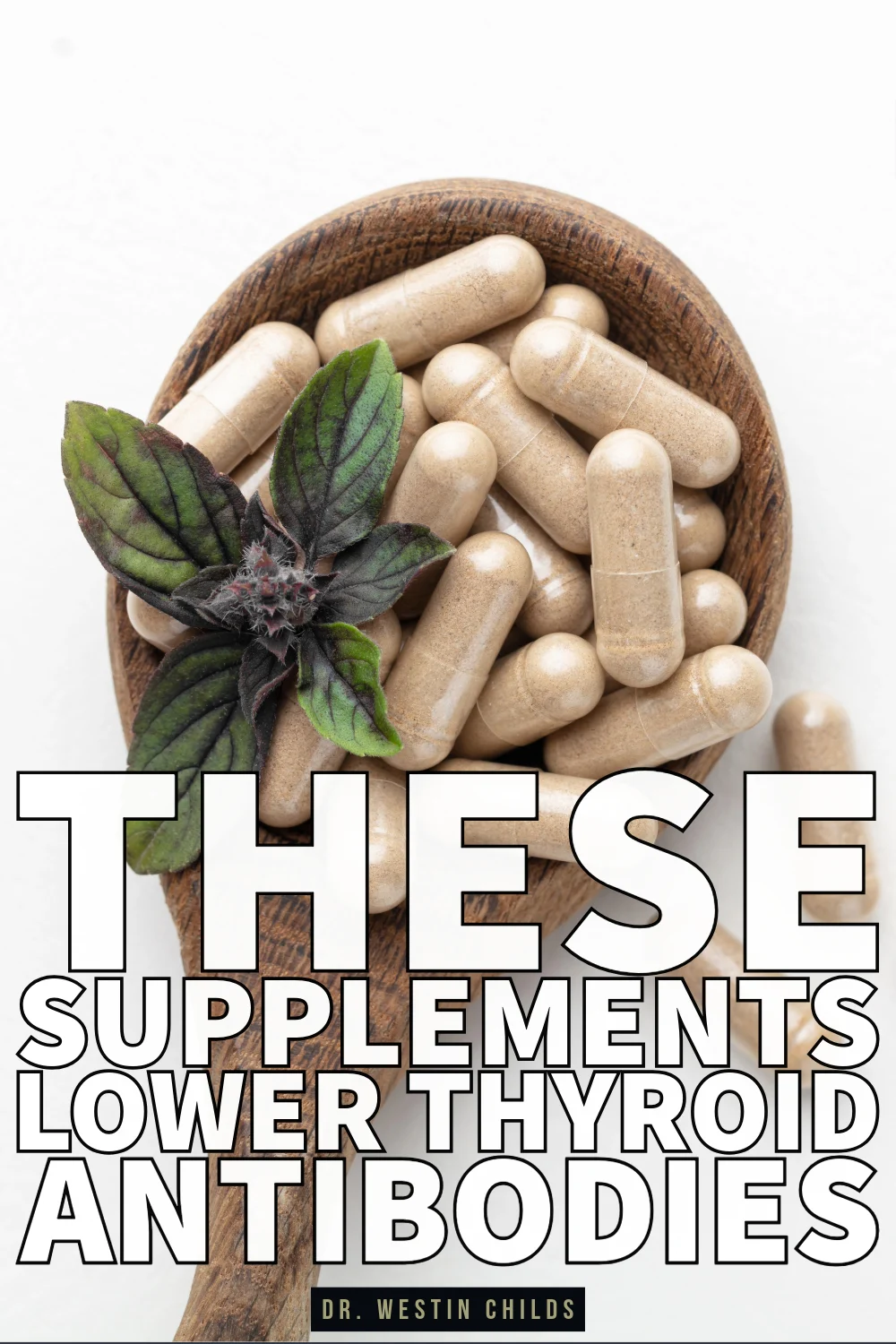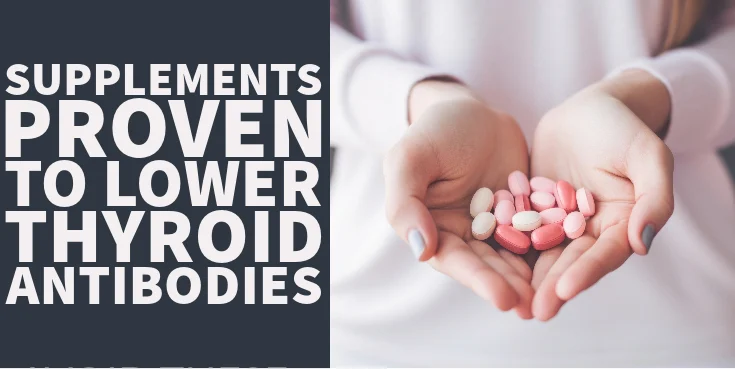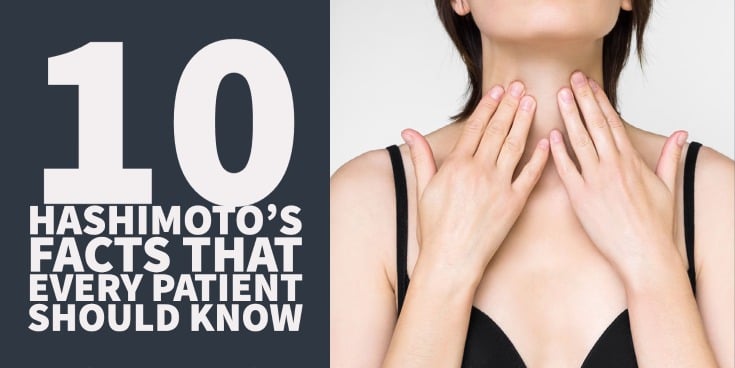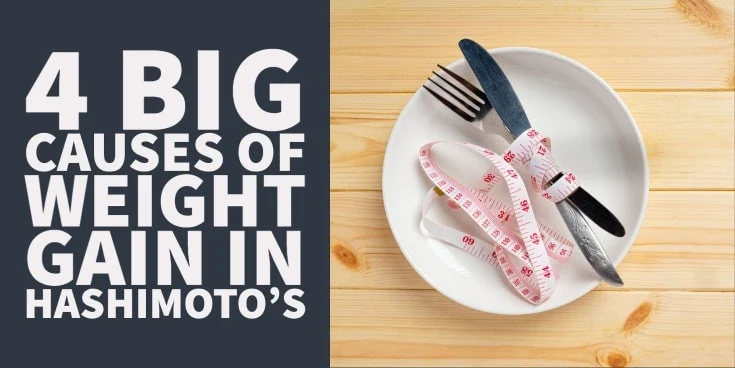The presence of antibodies in your body is never normal and indicates something is wrong with your immune system.
Under no circumstance should your body ever create antibodies to your own tissues!
When this happens, your immune system will eventually destroy whatever tissue it’s trying to attack.
If your body attacks your thyroid, as in the case of Hashimoto’s or Graves’ disease, it will eventually result in its destruction.
But what if there were a way to stop this destruction from occurring? If you could do that, then you’d essentially put your disease into remission.
While conventional medicine doesn’t have great options for treating thyroid antibodies, there are plenty of promising natural therapies that can help.
My favorite are over-the-counter supplements but there are plenty of others as well.
Who doesn’t love the idea of taking something completely natural that may halt the progression of their disease?
Pretty much everyone but there’s a catch:
While supplements can be effective, they don’t work for everyone, nor will they completely solve the problem if used by themselves.
But given that the alternative is just to take thyroid medication and “wait and see”, they fill in the gap between this option and what people really want.
DOWNLOAD FREE RESOURCES
Foods to Avoid if you Have Thyroid Problems:
I’ve found that these 10 foods cause the most problems for thyroid patients. Learn which foods you should avoid if you have thyroid disease of any type.
The Complete List of Thyroid Lab tests:
The list includes optimal ranges, normal ranges, and the complete list of tests you need to diagnose and manage thyroid disease correctly!
The Two Categories of Thyroid Reducing Supplements
Supplements that help lower thyroid antibodies fall into two major categories:
#1. Supplements that have scientific studies showing that they can lower thyroid antibodies.
These are pretty simple.
These are supplements that have been tested in humans, usually in a placebo-controlled environment, where researchers have given these supplements to people over a period of time and have tested their thyroid antibodies before and after.
The results of these studies have shown, after accounting for as many variables as possible, that certain supplements can indeed lower thyroid antibodies.
And the second group is supplements that may help based on their known physiologic function and anecdotal evidence.
These are supplements that may work based on our understanding of how autoimmune diseases start and progress, and how the target nutrient or botanical may positively impact that process.
Supplements in this group also have anecdotal evidence which means that, at some point, they have been used successfully by other thyroid patients.
But the primary distinction between both groups is that one has been tested and proven in human studies and the other hasn’t.
But here’s where things can get frustrating:
Just because something has been proven in a clinical study, even a placebo-controlled study, doesn’t guarantee that it will work for you!
I can’t tell you how many times I’ve given people treatments and supplements that should work based on everything that I’ve read and learned and, yet, they don’t provide the benefit they are supposed to.
And the opposite is also true.
There have been plenty of times that I’ve given people supplements that haven’t ever been proven to work and, lo and behold, they appear to work great.
For this reason, I’m giving you all of the information you need for both groups so you can experiment and see which works best for you.
With that in mind, let’s jump into the supplements that are proven to work:
4 Supplements Proven To Lower Thyroid Antibodies
#1. Nigella Sativa
Nigella sativa is a plant that produces black seeds and it has the honor of being one of the few plant-based compounds shown in at least one placebo-controlled trial to lower thyroid antibodies.
This study showed that, compared to placebo, taking 2 grams of nigella sativa resulted in a drop in TPO antibodies by roughly 50% over the course of 8 weeks (1) without any additional interventions outside of a stable dose of thyroid medication.
Patients who took nigella sativa during this 8-week timeframe also saw improvements in their TSH and T3 levels.

This indicates that this plant compound has both pro-immune benefits as well as pro-thyroid benefits.
This study used nigella sativa powder at 2 grams per day but you can also probably get similar or better benefits by consuming black seeds or black seed oil.
As I’ve stated in previous videos and articles, I think black seed oil is superior to nigella sativa powder because it’s easier to concentrate the dose and you can standardize the active ingredients.
You can see an example of the type of black seed oil that I recommend here.
#2. Selenium
Selenium is definitely a no-brainer if you have any sort of autoimmune thyroid condition, both because of studies that support its use as well as our understanding of how it works to protect the thyroid gland.
Autoimmune thyroid diseases stem from thyroid gland inflammation and damage, which is often self-induced during the creation of thyroid hormones.
Selenium and glutathione help protect the thyroid gland by preventing damage from hydrogen peroxide.
When selenium is low, your thyroid gland is more susceptible to damage and if it ends up getting damaged, the proteins in your thyroid gland can spill into your bloodstream where they may interact with your immune system.
Because selenium is necessary for the creation of glutathione, it makes sense that supplementing with it may help protect the thyroid gland and reduce thyroid antibodies.
And this is what we see in some studies.
One study, for instance, showed that people taking 200 mcg of selenium (as sodium selenite) saw a reduction in their TPO antibodies by around 40% and a reduction in thyroglobulin antibodies by around 10% (2) (though the reduction in thyroglobulin antibodies didn’t reach statistical significance which means that the result may have occurred by chance).
You should know that there is some conflicting data regarding whether or not taking selenium will provide benefit to thyroid antibodies.
In my experience, the key to whether or not selenium will be beneficial is all about whether or not you are already deficient.
If your selenium status is optimized, then taking more of it isn’t likely to help.
But if you’ve been neglecting your selenium intake for years then there’s a good chance you will be a positive responder when taking it.
You can see an example of how much selenium you should take and what form is best in this supplement.
#3. Inositol
Inositols are sugar-like compounds that are naturally found in the body and have a wide range of beneficial effects by acting as secondary messengers inside your cells.
As far as your thyroid is concerned, inositol augments the downstream effects of TSH receptor stimulation via the inositol-dependent pathway.
When activated, this pathway regulates the function of thyroglobulin which is a protein used to create thyroid hormone.
Not only does it have a direct effect on thyroid hormone levels, but also on thyroglobulin levels.
And given that thyroglobulin is the target of thyroglobulin antibodies, found commonly in Hashimoto’s and Graves’, it makes sense that optimizing the function of this protein may benefit those with these conditions.
This hypothesis has been born out in some studies:
One study showed that the combination of myoinositol and selenium taken over 6 months reduced TSH levels by about 27%, TPO antibodies by 13%, and thyroglobulin antibodies by around 16% (3).
Patients taking this combination also saw improvements in both their free T4 and free T3 levels to boot.
Elevated thyroglobulin antibodies are not as common as elevated thyroid peroxidase antibodies but if you have them then using inositol to optimize the function of thyroglobulin should be considered.
#4. Iodine reduction
I know putting this one here is technically a stretch because we’re not talking about taking a supplement but, instead, not taking one.
The reason this works is simple:
Excess iodine intake has been shown in multiple studies to increase thyroid antibodies in susceptible people.
Reducing your iodine intake to a normal level, around 150 to 300 mcg per day, may actually help normalize your thyroid antibodies.
This recommendation is based on population studies where this has been shown to occur (4).
The benefits of reducing iodine intake on thyroid antibodies will likely only be seen if you are or were previously taking a dose of iodine greater than 1,000 mcg per day for an extended period of time.
The connection between iodine intake and thyroid antibodies is more complicated than I can give time to right now, so if you want to learn more then make sure to check out my other videos on this topic.
On top of these 4 proven supplements, there are also plenty of others that have the potential to work.
Remember:
These do not have the same data supporting their use, but they can still definitely help in the right situation.
Supplements That May Help Based on Known Physiology & Anecdotal Experience
#1. Vitamin D
If you’re going for low-hanging fruit then vitamin D is the lowest you can go.
It’s hard to say for sure if taking vitamin D will lower your thyroid antibodies, but it’s a very safe therapy and does have the potential to help.
Physiologically, we know that on top of its role in regulating calcium, vitamin D also helps to stabilize the endocrine system and the immune system.
In this way, it acts more like a hormone than a vitamin which is why sometimes people refer to it as hormone D instead of vitamin D.
The problem with vitamin D supplementation is that you’ll see mixed results.
Some studies have shown that taking vitamin D (5), in the setting of existing vitamin D deficiency, may have a positive impact on thyroid antibodies.
While other studies suggest there is no benefit to the immune system or the thyroid when supplementing with it.
This is one of those that even though it appears complex, it really isn’t.
Every single thyroid patient should have their vitamin D level checked and addressed if found to be low.
This is because even if it doesn’t provide direct benefits to your thyroid (which is debatable, by the way, because it still might), it still provides general benefits to your overall health including mood, calcium levels, autoimmune disease risk, and more.
If you want it to have even more benefit then consider combining it with…
#2. Fish oil
The combination of fish oil and vitamin D has been shown in a large study of over 25,000 people to reduce the risk of all autoimmune diseases by 22% (6).
This indicates that both of these compounds play some role in regulating the immune system and that taking both is better than taking one or the other.
There’s no shortage of studies showing that fish oil has anti-inflammatory effects and these benefits are most likely mediated because of its EPA and DHA content.
These long-chain fatty acids help to balance out arachidonic acid, an omega-6 fatty acid, which is elevated with the consumption of seed oils, meat, and poultry.
A relative imbalance in arachidonic acid promotes inflammation and, very likely, makes autoimmune diseases worse.
And because thyroid autoimmune diseases are, at heart, inflammatory diseases, it makes sense that taking something that is anti-inflammatory would probably have some benefit on the underlying disease.
While no studies prove that taking fish oil will reduce thyroid antibodies, it seems plausible that they are at least beneficial given our understanding of how they work in the body.
Given their known documented benefits, the fact that few people get enough fish oil as is, and their potential to help your thyroid, you can’t go wrong in taking them.
#3. Magnesium
Magnesium is involved as a cofactor for more than 300 different enzymes making it important for a number of different cellular functions.
One or more of these likely impact thyroid function and the immune system, because we know that as magnesium levels drop, the risk of Hashimoto’s, hypothyroidism, and elevated TPO antibodies increases (7).
We also know that data from HANES suggests that only 20-25% of Americans get enough magnesium so this seems like another slam dunk.
Unfortunately, while taking magnesium is definitely beneficial for those with autoimmune thyroid disease, it doesn’t appear that replacing low magnesium will lower thyroid antibodies or increase thyroid function directly.
It’s still a good idea to take magnesium, given its other benefits and the fact that so many people are deficient, but don’t count on it to fix your immune system.
Recap
So is it worth taking supplements if you have Hashimoto’s or Graves’ disease?
I think so and my experience suggests that the majority of thyroid patients who use them do see significant benefit.
If you’re looking to reduce your thyroid antibodies then I’d also recommend looking at your diet which means you’ll want to check out this article next.
Now I want to hear from you:
Do you have elevated thyroid antibodies? If so, which type?
Have you had any success in lowering your thyroid antibodies through different treatments?
Have you tried any of the supplements listed here? If so, have they worked for you?
If not, are you planning on trying any now?
Leave your questions or comments below!
Scientific References
#1. bmccomplementmedtherapies.biomedcentral.com/articles/10.1186/s12906-016-1432-2#Tab3
#2. academic.oup.com/jcem/article/87/4/1687/2374966
#3. ncbi.nlm.nih.gov/pmc/articles/PMC5331475/
#4. ncbi.nlm.nih.gov/pmc/articles/PMC8106604/
#5. pubmed.ncbi.nlm.nih.gov/27186560/
#6. ncbi.nlm.nih.gov/pmc/articles/PMC8791065/
#7. ncbi.nlm.nih.gov/pmc/articles/PMC6028657/









